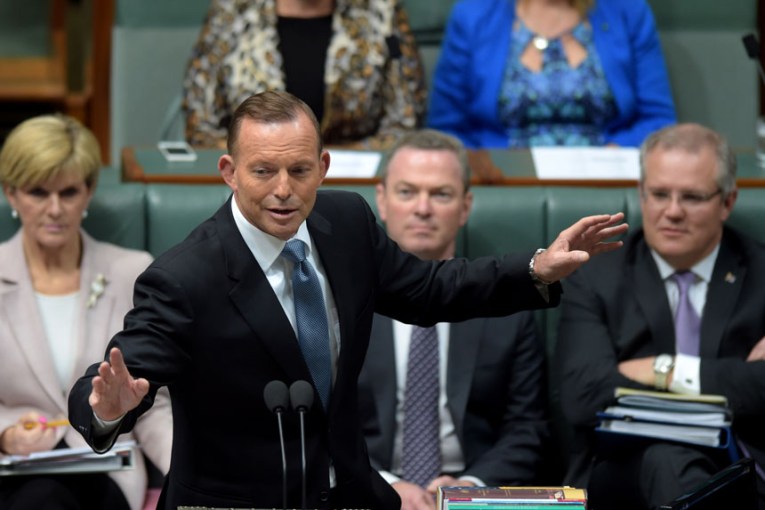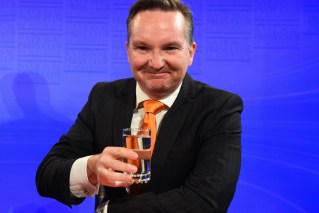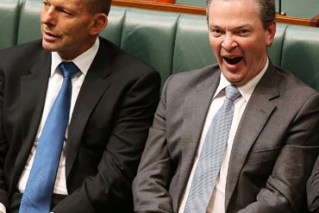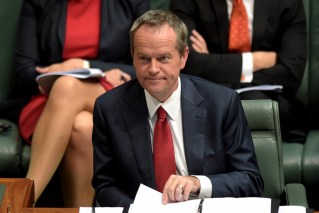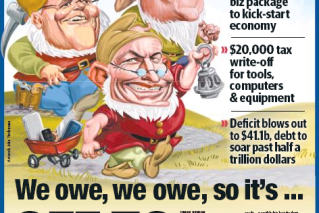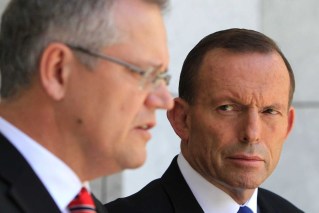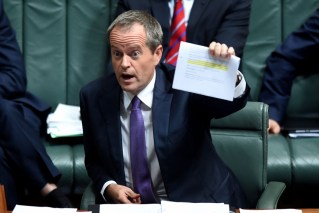Budget 2015: what we know so far
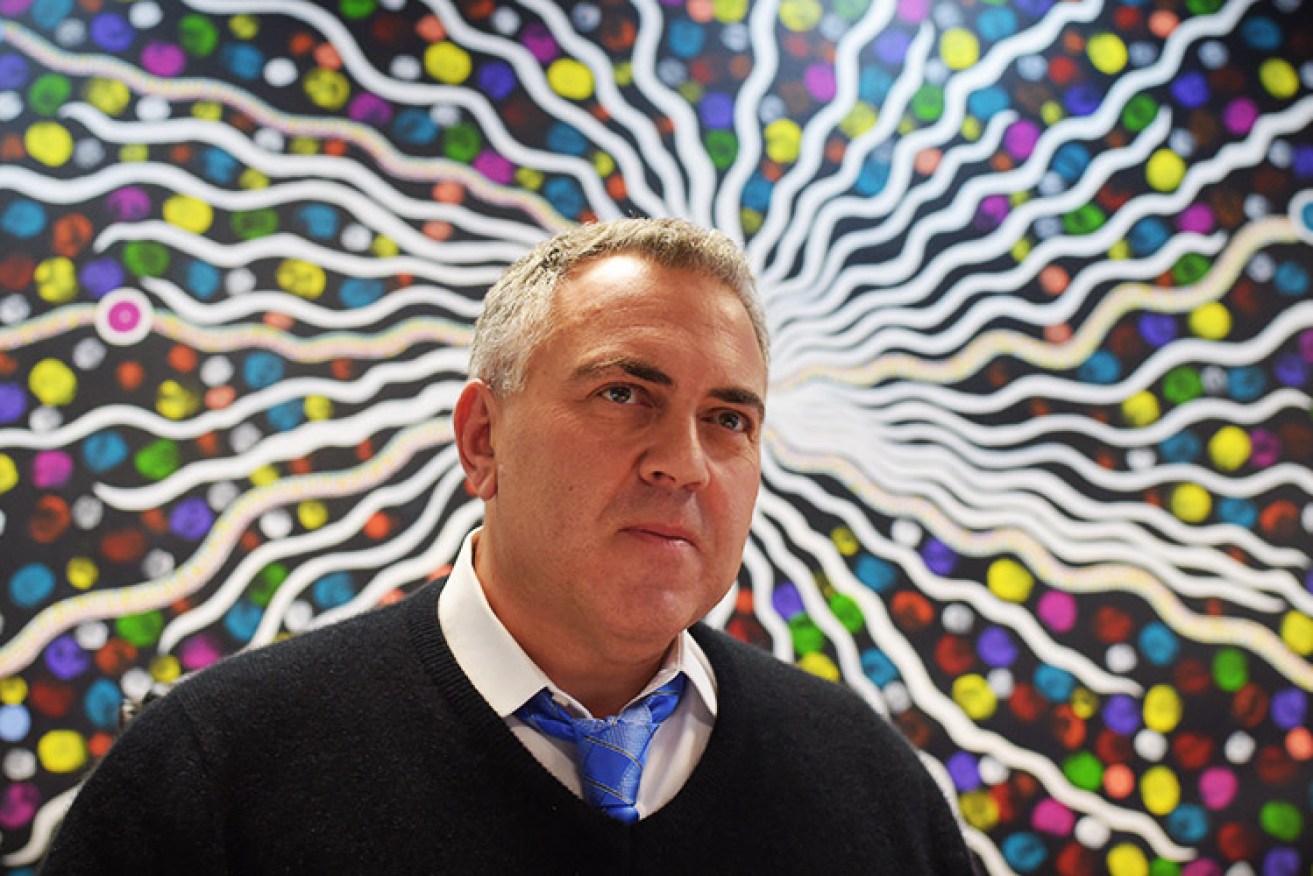
AAP
Budget 2015 is shaping up to be a far different beast than last year’s broad-scale “budget repair job”, if early indications from the Prime Minister and Treasurer are anything to go by.
According to Tony Abbott, Joe Hockey will unveil a “dull and routine” budget on May 12 – one which will not seek to protect the federal coffers at the expense of the household purse.
But there will be changes.
The centrepiece “families package”, targeted at working parents paying for childcare, has largely been announced and will be detailed on Tuesday night.
• Joe Hockey is no ‘phantom treasurer’, says PM
• Budget childcare shake-up has winners, losers
As will a small business tax cut, which could lead to a two-tier tax system.
Pension eligibility rules will also be tightened, with tens of thousands of wealthier retirees set to lose access, and controversial plans to change pension indexing rules scrapped.
A possible spending slowdown for other welfare payments is also on the cards.
Several billions of dollars worth of measures announced last year will stay on the books, banked as savings, even though there is scant prospect of them passing Parliament.
And while the Government is already building expectations that the deficit will blow out further, it is insisting the budget will show “a very credible continuing path back to surplus”.
Here is a look at what we know so far of Budget 2015:
Falling revenue
The Prime Minister revealed in April that the falling iron ore price – down below $50 per tonne in March and April – had blown a hole of $30 billion over four years in the budget. Mr Hockey has said Treasury is contemplating a price of $35 per tonne in its estimates.
Health cuts
Health Minister Sussan Ley has been tasked with cutting $3 billion over the next five years from the money the Government pays drug companies for medicines and what it pays chemists to dispense them.
There will also be a wholesale review of every test, treatment and procedure subsidised under Medicare, but the Government insists this would not prompt another push for a GP co-payment.

Tony Abbott said the measures would lead to 240,000 families increasing their hours in paid employment.
Families package
The $3.5 billion package is focused on getting low- and middle-income parents to work more, with boosted payments for most families.
However, the changes will be contingent on the Senate passing savings from last year’s budget which would cut Family Tax Benefit payments.
Stay-at-home parents will lose childcare subsidies if their partners earn more than $65,000.
The package also includes a new subsidy for nannies in a two-year, $250 million trial program to start in January and a $327 million boost to funding for children from disadvantaged families.
And after dumping his “signature” paid parental leave scheme in February, Mr Abbott has announced that new parents receiving an employer-funded PPL scheme will no longer be able to access the minimum wage taxpayer funded scheme.
Small business tax cut
A long-standing commitment to cut the tax rate for small businesses looks set to be realised, with the Prime Minister confirming in February the cut would be at least 1.5 per cent from July 1, 2015.
In April, he formally confirmed big business would not receive a tax cut, as promised in the 2013 election campaign.
Pensions
Tens of thousands of wealthier retirees will lose access to the age pension under changes targeting what Mr Abbott has described as “liquid assets millionaires”.
Under the changes, the maximum value of assets a person can own, in order to receive the full pension, will be increased from $202,000 to $250,000 for single home owners and from $286,500 to $375,000 for couples who own their own home.
Around 300,000 people will be affected.
The Government says the measures will save $2.4 billion over the next four years.
Social Services Minister Scott Morrison has also dumped a controversial plan to link pension increases to inflation rather than average male weekly earnings.
Bank deposits tax
A new tax on bank deposits to build a fund that could be used in the event of a banking collapse. In a handy little boost, the money would also sit on the budget balance sheet.
Banks have warned the tax will lead to higher costs for customers.
Labor put forward the idea in 2013.
‘Google tax’
The Government has indicated it may bring in new measures to target multi-national companies which currently save billions by paying most of their tax in countries that are lower-taxing than Australia.
A diverted profits tax, referred to as a “Google tax”, has just been introduced in the United Kingdom at a rate of 25 per cent, and will target multinationals with sales of more than 10 million pounds in Britain.
In early April, a Senate inquiry heard that 10 companies transferred a combined $31.4 billion in the 2011-2012 financial year from Australia to Singapore, where the corporate tax rate is 17 per cent.
Mental health funding
Hundreds of mental health services were brought back from the brink of collapse in early April when the Government announced a $300-million, 12-month funding extension.
Ms Ley said priority would be placed on frontline services.
Homeless services funding
The budget is expected to include funding of $230 million for two years to provide services for homeless people, with an emphasis on tackling domestic violence.
Drug and alcohol treatment funding
The Government reversed a cut to drug and alcohol treatment services, guaranteeing funding of $87 million to NGOs until June 30 2016.
Federal, state and territory governments are considering a review of the sector to decide future funding.
Legal Aid cuts reversed
Funding of $25.5 million over two years has been reinstated to community and Indigenous legal centres.
Defence pay offer
After a backlash from its own backbench and independent senator Jacqui Lambie over a planned pay rise of 1.5 per cent for Defence personnel, the Government lifted the offer to two per cent and backed down over cuts to allowances.
The move will cost $217 million over the forward estimates.
Car industry backdown
In March, the Government backed down on a $900 million cut to the Automotive Transformation Scheme but it will bank most of that because the assistance is flowing to a dying sector.
Only around $100 million in support will actually be handed over.
Iraq conflict
In December’s budget update, the cost of sending troops and aircraft to the Middle East was estimated to cost $306 million.
Previously, the Prime Minister said it would cost around $500 million a year.
Troop numbers were boosted by 300 in March at an expected cost of $100 million a year.
No more public service cuts
The Prime Minister said in mid-March the federal bureaucracy was safe from any more “major” downsizing.
It lost 15,500 staff between mid-2012 and the end of 2014.
-ABC

